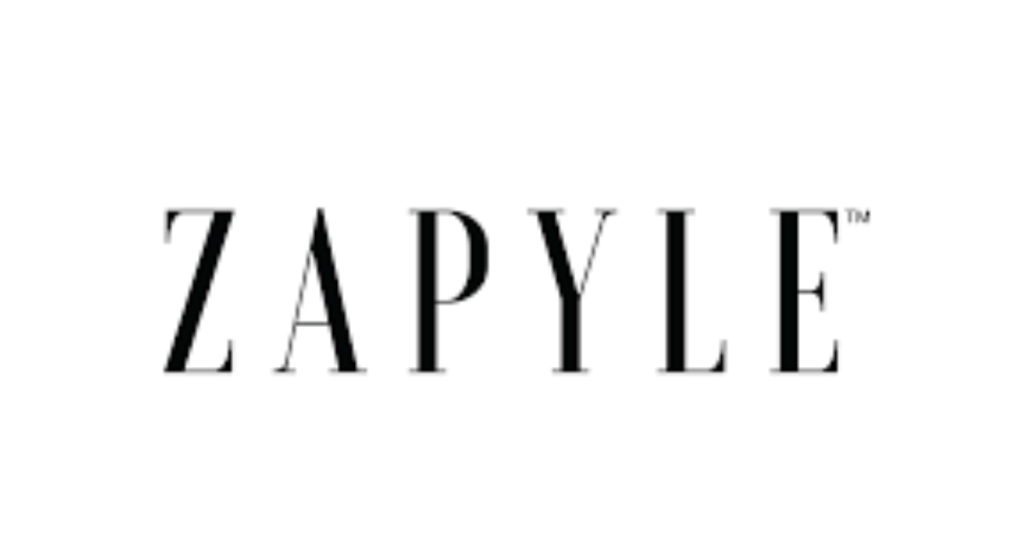Fashion and technology are converging more than ever before, with startups in India at the forefront of this intersection. These FashionTech startups are leveraging innovative technologies to revolutionize the fashion industry, offering everything from personalized shopping experiences to sustainable fashion solutions. Here’s a detailed look at the top 10 FashionTech startups in India:
1. LimeRoad

Summary:
LimeRoad is a unique FashionTech startup that blends social networking with e-commerce, allowing users to create, share, and shop personalized fashion collections. The platform employs AI-driven algorithms to deliver personalized recommendations based on user preferences and trends. LimeRoad focuses on enhancing user engagement through community-driven content creation, making it a standout in the Indian fashion e-commerce landscape.
| Company Name | LimeRoad |
|---|---|
| Description | Combines social networking with e-commerce for personalized fashion collections. |
| Technology | AI-driven recommendations for personalized shopping experiences. |
| Innovation | Social commerce integration, user-generated content. |
LimeRoad combines social networking with e-commerce, allowing users to create and share their own fashion collections. The platform uses AI-driven recommendations to provide personalized shopping experiences based on user preferences.
2. Voylla

Summary:
Voylla is India’s leading fashion jewelry brand that integrates technology to streamline its supply chain management and enhance customer experiences. The company utilizes augmented reality (AR) for virtual try-ons, enabling customers to visualize jewelry pieces before purchase. Voylla’s focus on digital transformation in jewelry retailing underscores its commitment to offering personalized and innovative shopping solutions in the FashionTech sector.
| Company Name | Voylla |
|---|---|
| Description | Leading fashion jewelry brand using technology for efficient supply chain and customer experiences. |
| Technology | AR for virtual try-ons, blockchain for supply chain transparency. |
| Innovation | Personalized customer experiences, digital transformation in jewelry retail. |
Voylla is India’s leading fashion jewelry brand that utilizes technology for efficient supply chain management and personalized customer experiences. They leverage augmented reality (AR) for virtual try-ons, enhancing the online shopping experience.
3. FabAlley

Summary:
FabAlley is a women-centric FashionTech startup known for its trendy clothing and accessories. The company leverages AI-powered predictive analytics to forecast fashion trends and manage inventory efficiently. FabAlley’s adoption of data-driven decision-making ensures that it stays ahead in the competitive fast fashion industry, catering to the dynamic preferences of modern consumers.
| Company Name | FabAlley |
|---|---|
| Description | Specializes in women’s fashion with AI-driven predictive analytics for trend forecasting. |
| Technology | AI for trend analysis, inventory management. |
| Innovation | Fast fashion adaptation, data-driven decision-making. |
FabAlley specializes in women’s fashion, offering trendy clothing and accessories. They integrate technology for predictive analytics to forecast fashion trends and manage inventory effectively, ensuring they stay ahead in the fast-paced fashion industry.
4. StyleDotMe

Summary:
StyleDotMe has revolutionized fashion advice through its app ‘Mirror,’ where users can receive instant feedback and recommendations from a community of fashion enthusiasts and experts. The app utilizes AI for personalized style suggestions and augmented reality (AR) for virtual try-ons, enhancing the online shopping experience. StyleDotMe’s innovative approach to social commerce and real-time fashion feedback makes it a prominent player in FashionTech innovation.
| Company Name | StyleDotMe |
|---|---|
| Description | Fashion app ‘Mirror’ for instant fashion advice and style recommendations. |
| Technology | AI for style recommendations, AR for virtual try-ons. |
| Innovation | Community-driven fashion advice, real-time style feedback. |
StyleDotMe developed the popular fashion app ‘Mirror’ which enables users to receive instant fashion advice from a community of fashion enthusiasts and experts. Their app utilizes AI for style recommendations and AR for virtual try-ons.
5. Myntra

Summary:
Myntra is one of India’s largest fashion e-commerce platforms, renowned for its extensive collection of clothing, footwear, and accessories. The company employs advanced AI and machine learning algorithms to provide personalized recommendations and optimize customer engagement. Myntra’s scalable technological solutions and customer-centric approach have solidified its position as a leader in the Indian FashionTech landscape.
| Company Name | Myntra |
|---|---|
| Description | Leading fashion e-commerce platform in India with extensive AI integration. |
| Technology | AI and machine learning for personalized recommendations, customer engagement. |
| Innovation | Scalable AI-driven solutions, customer-centric approach. |
Myntra is one of India’s largest fashion e-commerce platforms, known for its extensive collection of clothing, footwear, and accessories. They use AI and machine learning to personalize recommendations and improve customer engagement.
6. Zivame

Summary:
Zivame disrupted the lingerie retail market in India by offering a wide range of products through its online platform. The company utilizes AI for personalized sizing recommendations and augmented reality (AR) for virtual fitting rooms, ensuring a seamless shopping experience for customers. Zivame’s focus on innovation in intimate apparel and personalized customer interactions distinguishes it as a key player in FashionTech.
| Company Name | Zivame |
|---|---|
| Description | Online platform for lingerie shopping with personalized sizing and virtual fitting rooms. |
| Technology | AI for sizing recommendations, AR for virtual try-ons. |
| Innovation | Disrupting lingerie retail, personalized customer experiences. |
Zivame revolutionized lingerie shopping in India by offering a wide range of products through their online platform. They use technology for personalized sizing recommendations and virtual fitting rooms to enhance the shopping experience.
7. Wooplr

Summary:
Wooplr is a social commerce platform that connects fashion influencers with consumers, allowing users to discover and shop for trendy fashion items recommended by influencers. The platform utilizes AI for trend analysis and user behavior insights, enhancing the effectiveness of influencer-driven sales. Wooplr’s integration of social media and e-commerce makes it a unique player in the FashionTech ecosystem.
| Company Name | Wooplr |
|---|---|
| Description | Social commerce platform connecting fashion influencers with consumers. |
| Technology | AI for trend analysis, user behavior insights. |
| Innovation | Influencer-driven sales, social media integration. |
Wooplr is a social commerce platform that connects fashion influencers with consumers. They use AI to analyze fashion trends and user behavior, enabling influencers to recommend products that match their followers’ preferences.
8. Roposo

Summary:
Roposo is a popular social media platform focused on fashion and lifestyle, offering users the ability to discover trends, share their styles, and shop directly from videos. The platform employs AI algorithms for personalized content recommendations and user engagement strategies. Roposo’s innovative approach to social commerce and video-driven shopping experiences has garnered a loyal user base in India’s dynamic FashionTech market.
| Company Name | Roposo |
|---|---|
| Description | Social media platform focused on fashion and lifestyle with shopping capabilities. |
| Technology | AI for content recommendations, user engagement. |
| Innovation | Social commerce, video-driven shopping experience. |
Roposo is a popular social media platform focused on fashion and lifestyle. It allows users to discover trends, share their style, and shop directly from videos. Roposo uses AI algorithms for personalized content recommendations.
9. Zapyle

Summary:
Zapyle is a luxury fashion resale platform that leverages blockchain technology for authentication and transparency in the resale process. The platform allows users to buy and sell pre-owned designer clothing and accessories, promoting sustainability in fashion consumption. Zapyle’s commitment to ethical fashion practices and luxury resale marketplaces positions it as a pioneer in sustainable FashionTech solutions in India.
| Company Name | Zapyle |
|---|---|
| Description | Luxury fashion resale platform using blockchain for authenticity and transparency. |
| Technology | Blockchain for authentication, AI for marketplace optimization. |
| Innovation | Sustainable fashion, luxury resale market. |
Zapyle is a luxury fashion resale platform that enables users to buy and sell pre-owned designer clothing and accessories. They use blockchain technology for authentication and transparency in the resale process.
10. Bare Anatomy

Summary:
Bare Anatomy specializes in personalized hair care products tailored to individual hair profiles. The company utilizes AI-driven analysis of customer data to create customized formulations that address specific hair needs. Bare Anatomy’s focus on data-driven beauty solutions and personalized customer experiences distinguishes it as an innovative player in the beauty and FashionTech sector in India.
| Company Name | Bare Anatomy |
|---|---|
| Description | Customized hair care products based on individual hair profiles. |
| Technology | AI-driven analysis for personalized formulations. |
| Innovation | Personalized beauty solutions, data-driven customization. |
Bare Anatomy offers customized hair care products based on individual hair profiles. They use AI-driven analysis of customer data to create personalized formulations, ensuring each product meets specific hair needs.
Frequently Asked Questions (FAQs) about FashionTech Startups in India
| Question | Answer |
|---|---|
| What is FashionTech? | FashionTech refers to the intersection of fashion and technology, where innovative technologies like AI, AR, and blockchain are used to enhance various aspects of the fashion industry, including retail, design, manufacturing, and consumer experience. |
| Why are FashionTech startups important? | FashionTech startups play a crucial role in modernizing the fashion industry by introducing disruptive technologies that improve efficiency, sustainability, and customer engagement. They offer innovative solutions like personalized shopping experiences, virtual try-ons, and sustainable practices. |
| How do FashionTech startups use AI? | FashionTech startups use AI for various purposes such as trend forecasting, personalized recommendations, virtual try-ons, inventory management, and customer service automation. AI helps them analyze large datasets to understand consumer preferences and behavior, thus enhancing their products and services. |
| What role does AR play in FashionTech? | Augmented Reality (AR) is used in FashionTech for virtual try-ons, allowing customers to visualize how clothing or accessories look on them before making a purchase. It enhances the online shopping experience by bridging the gap between physical and digital retail environments. |
| How do FashionTech startups contribute to sustainability? | Many FashionTech startups focus on sustainability by promoting practices such as ethical sourcing, recycling, and reducing environmental impact. Technologies like blockchain are used for supply chain transparency and verifying the authenticity of sustainable practices in fashion production. |
| What are some examples of FashionTech innovations in India? | Examples include personalized shopping experiences (LimeRoad), virtual try-ons (Voylla and Zivame), AI-driven trend analysis (FabAlley and Myntra), social commerce platforms (Wooplr), and luxury resale with blockchain (Zapyle). These innovations cater to changing consumer demands and enhance the overall fashion retail experience. |
| How can consumers benefit from FashionTech startups? | Consumers benefit from FashionTech startups through improved shopping experiences, personalized recommendations, access to trend-driven products, virtual try-ons for better purchasing decisions, and options for sustainable fashion choices. These startups enhance convenience and offer a more engaging and tailored shopping journey. |
Conclusion
These FashionTech startups in India exemplify how technology is reshaping the fashion industry by enhancing user experiences, optimizing operations, and promoting sustainability. Whether through AI-driven recommendations, AR-powered virtual try-ons, or social commerce platforms, these startups are at the forefront of innovation, catering to the evolving needs of modern consumers. As they continue to grow and innovate, they are likely to play a significant role in shaping the future of fashion globally.